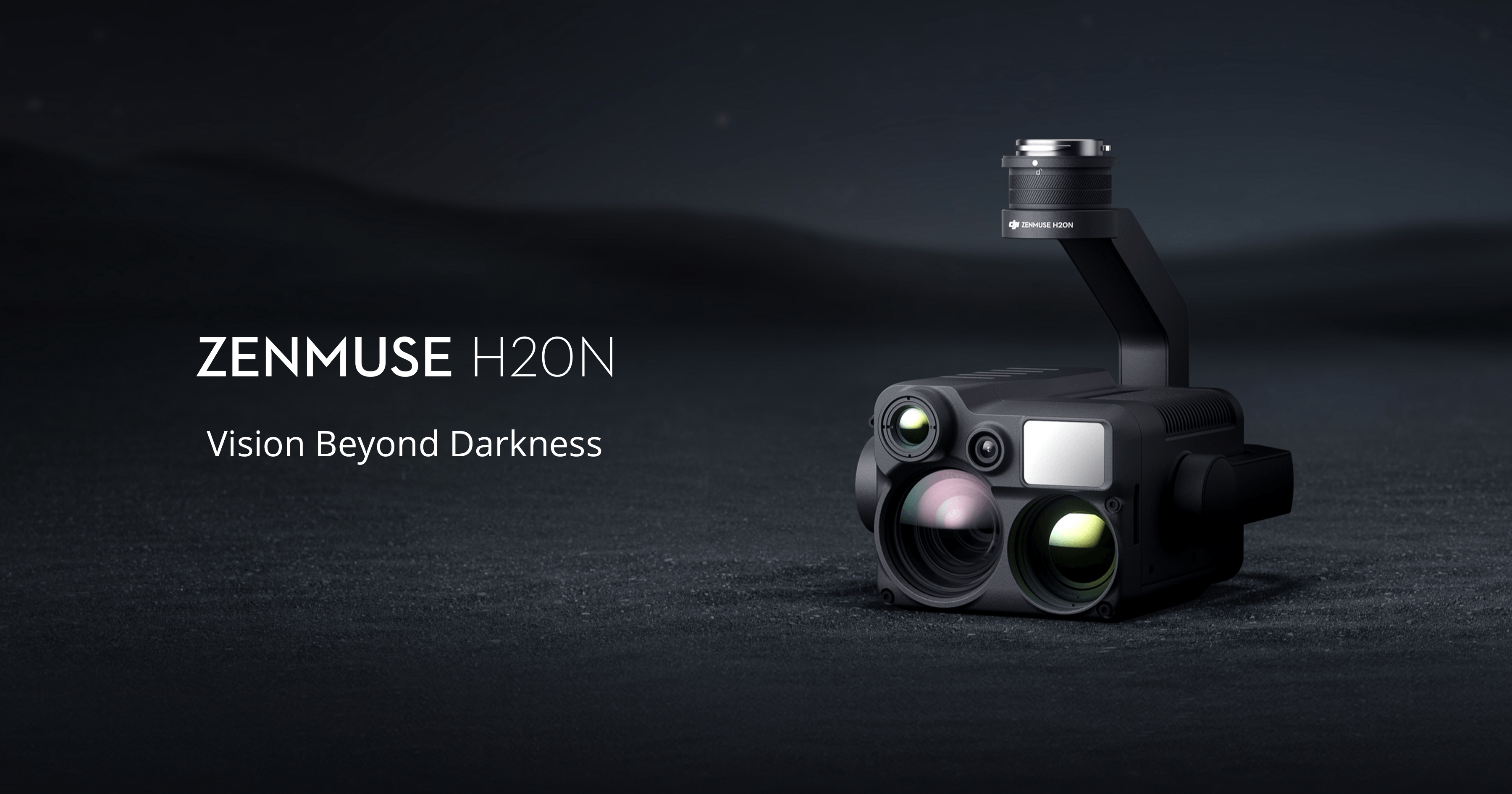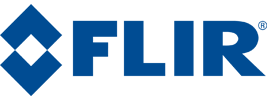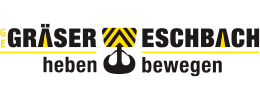DJI Enables Next-Generation Flights For Professional Drone Operators
Matrice 30 Enterprise Drone Delivers Unprecedented Power That Fits In A Backpack
-DJI FlightHub 2 Controls Remote Planning, Flying And Data Management For Drone Fleets
-DJI Dock Stores, Launches, Receives And Recharges Drones Automatically
-New Zenmuse H20N sensor gives starlight vision to DJI M300 RTK drone
Das DJI Enterprise Sortiment erfährt nur selten ein Update aber am 21. März 2022 war es wieder soweit. Das Warten hat sich ganz sicher gelohnt, denn diese 4 Produkte können den Drohnenmarkt grundlegend verändern.
The New DJI Matrice 30 – A Mighty, Versatile, Transportable Commercial Drone
The new DJI Matrice 30 is DJI Enterprise's flagship drone that fits in a backpack. It integrates multiple high-performance sensors into one single camera payload, is controlled with an ingenious redesigned remote control and runs on upgraded Pilot 2 software, which significantly improves the flight experience. The M30 model offers much more power, endurance and capability for rugged professional uses, while its size makes it ideal for easy transportation and fast setup.
Apart from its outstanding performance and new format, the DJI M30 allows professionals to fly and perform beyond their immediate surroundings. It integrates smoothly with the new DJI FlightHub 2 fleet management cloud-based software and the DJI Dock for collaboration with remote and unattended operations, bringing efficiency innovation to various industries.
The M30 series comes in two versions, the M30 and the M30T. The M30 model integrates a 48 megapixel 1/2'' CMOS sensor zoom camera with 5×~16× optical and 200× digital zoom, a 12 megapixel wide-angle camera, 8k photo 4K/30 fps video resolution, and a laser rangefinder which can give the precise coordinates of objects up to 1,200 meters away. The M30T features an additional 640x512 px radiometric thermal camera.
A Robust, Safe and Reliable Aerial Platform with Extraordinary Resistance
With IP55 ingress protection, the M30 offers outstanding performance in harsh environments, in heavy rains, high winds, high altitudes, even in icy and snowy conditions and extreme temperatures from -20° C to 50° C.
The DJI M30 also offers an improved first-person view pilot camera for low light conditions, built-in redundancies and backup systems, three-propeller emergency landing, a Health Management System, and six-way obstacle avoidance sensors enabling the pilot to focus on the mission. Its four-antenna OcuSync 3 Enterprise transmission ensures a strong redundancy, and it supports LTE link backup, in the face of complex terrain and working conditions.
Unlike other commercial drones, the DJI M30 adopts a foldable integrated lightweight design (3.7 kg take-off weight) that is easy to unfold, store and carry anywhere. Its new self-heating TB30 battery design can support at least 400 charge cycles and allows a 41-minute flight time. Its smart BS30 charging case allows quick battery charging from 20% to 90% in 30 minutes. The M30 also has a new self-locking system and can be folded by just pressing a button. This makes it the fastest, easiest high-performance DJI Enterprise drone to set up.
User Data Protection: Secured and Private all the Way
DJI Enterprise customers expect the highest standards of security and privacy for their data. The M30 offers best-in-class data security protocols built on DJI’s security-first Matrice 300 V3 firmware.
- Offline updates enable future firmware updates to be completed entirely offline. Firmware packages can be downloaded from the DJI official website and saved to an external storage device such a microSD card, before being uploaded into the M30 and updated with DJI Pilot.
- Local Data Mode acts like “airplane mode” on a phone by completely disconnecting the DJI M30 from the internet, ensuring ALL data stays only in the drone.
- SD card AES encryption protects all the photos, videos, and flight logs that get stored on the microSD card by a security code and AES encryption.
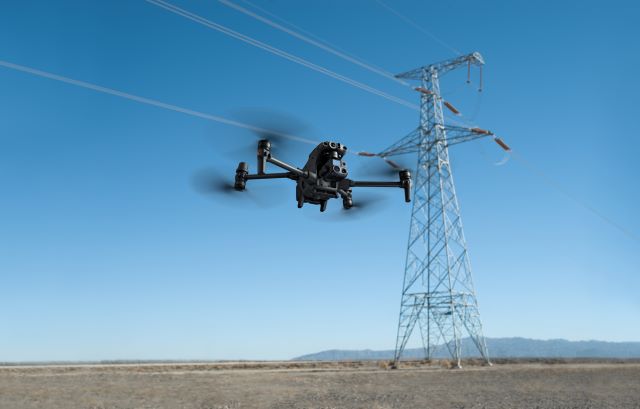
DJI Dock: Autonomous Docking For Programmed Flights in Remote Areas
The DJI Dock is an autonomous takeoff, landing and charging station allowing fully automatic, programmed flights with the DJI M30 Series (Dock Version). It widens the horizon for automated missions that can be monitored and supervised remotely. After setup, the fully charged M30 drone can take off to the skies from the DJI Dock through FlightHub 2 programmed automatic missions anywhere within a 7 km radius.
Fast Rotation Operation - Once the drone lands after its mission, it will recharge automatically. Thanks to the fast charging and battery cooling system, the drone can take off again only 25 minutes after it landed.
Excellent environmental adaptability: Its modular durable design allows continuous operations day and night, no matter what the weather is. The DJI Dock was built to last, and to require minimal care and maintenance. The Dock is rated at IP55 and the core internal components are IP67, making it waterproof and dustproof even when it is open. The DJI Dock’s interior is climate controlled, to help bring the batteries to the optimal temperature for charging M30 safely even with external temperatures ranging from -35 to 50 degrees Celsius.
Its connectivity can be expanded, thanks to a port for an external 4G dongle. In case of power outage caused by a disaster, an internal battery will take over and keep the Dock operational, to make sure the M30 lands safely from its mission.
Easy to set up, easy to deploy: The DJI Dock only weighs 90 kg and covers an area of less than 1 square meter, and can be transported by elevator; it only needs to be fixed on the ground, turned on, connected to the power supply, and connected to the internet. The DJI Dock integrates built-in antennas, a weather station, ultra-wide-angle surveillance cameras and a D-RTK base station. The installation is in one step, and the integrated design greatly reduces the difficulty of deployment.
The DJI Dock is also extremely easy and practical to set up and configure. It can be done directly on site with the DJI RC Plus offering complete control over the Dock and the M30, the missions and its scheduling, as well as the data collected.
Ready for advanced regulations: The DJI Dock opens new possibilities for many fields that can benefit from automated flights, such as infrastructure inspection, site monitoring and engineering supervision. In areas where drones are allowed to fly autonomously, unattended or beyond the operator’s visual line of sight, the DJI Dock is ready to enable those operations, with remote supervision from another location through FlightHub 2.
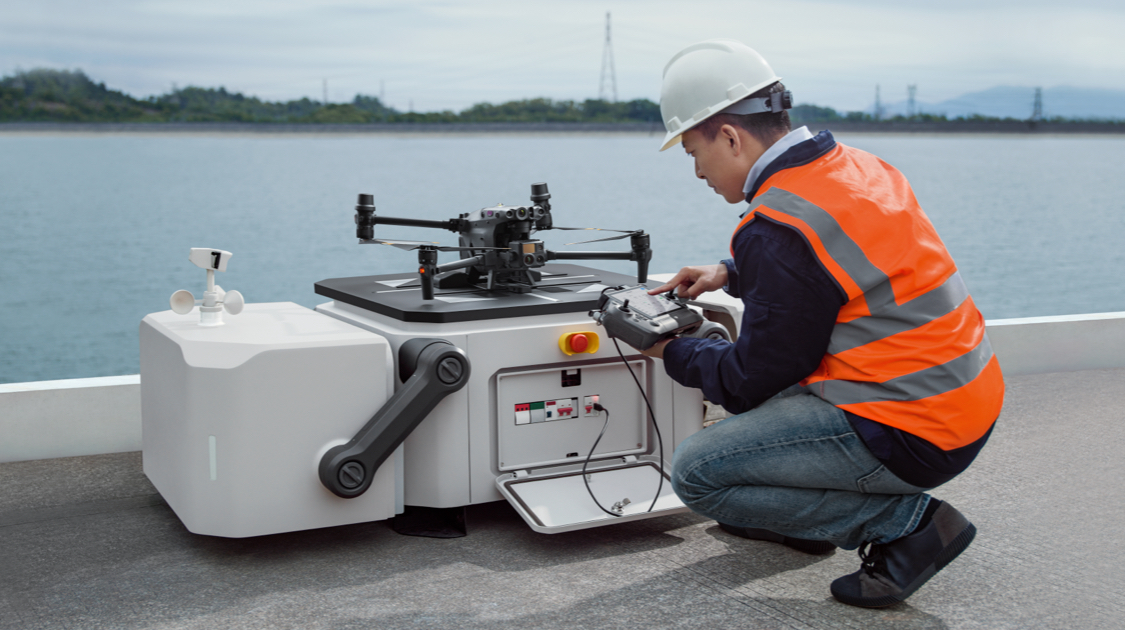
DJI Dock: Autonomous Docking For Programmed Flights in Remote Areas
The DJI Dock is an autonomous takeoff, landing and charging station allowing fully automatic, programmed flights with the DJI M30 Series (Dock Version). It widens the horizon for automated missions that can be monitored and supervised remotely. After setup, the fully charged M30 drone can take off to the skies from the DJI Dock through FlightHub 2 programmed automatic missions anywhere within a 7 km radius.
Fast Rotation Operation - Once the drone lands after its mission, it will recharge automatically. Thanks to the fast charging and battery cooling system, the drone can take off again only 25 minutes after it landed.
Excellent environmental adaptability: Its modular durable design allows continuous operations day and night, no matter what the weather is. The DJI Dock was built to last, and to require minimal care and maintenance. The Dock is rated at IP55 and the core internal components are IP67, making it waterproof and dustproof even when it is open. The DJI Dock’s interior is climate controlled, to help bring the batteries to the optimal temperature for charging M30 safely even with external temperatures ranging from -35 to 50 degrees Celsius.
Its connectivity can be expanded, thanks to a port for an external 4G dongle. In case of power outage caused by a disaster, an internal battery will take over and keep the Dock operational, to make sure the M30 lands safely from its mission.
Easy to set up, easy to deploy: The DJI Dock only weighs 90 kg and covers an area of less than 1 square meter, and can be transported by elevator; it only needs to be fixed on the ground, turned on, connected to the power supply, and connected to the internet. The DJI Dock integrates built-in antennas, a weather station, ultra-wide-angle surveillance cameras and a D-RTK base station. The installation is in one step, and the integrated design greatly reduces the difficulty of deployment.
The DJI Dock is also extremely easy and practical to set up and configure. It can be done directly on site with the DJI RC Plus offering complete control over the Dock and the M30, the missions and its scheduling, as well as the data collected.
Ready for advanced regulations: The DJI Dock opens new possibilities for many fields that can benefit from automated flights, such as infrastructure inspection, site monitoring and engineering supervision. In areas where drones are allowed to fly autonomously, unattended or beyond the operator’s visual line of sight, the DJI Dock is ready to enable those operations, with remote supervision from another location through FlightHub 2.
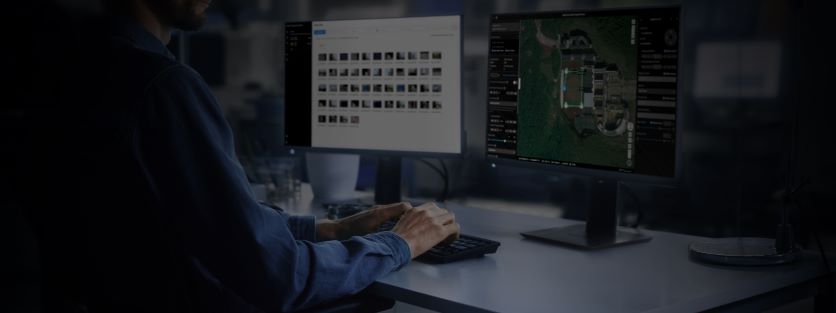
The DJI RC Plus, the new Flagship Enterprise remote controller.
The new DJI RC Plus remote controller meets the high expectations of professional pilots. The DJI RC Plus features a 7-inch-wide high-definition screen enabling pilots to see more visual information thanks to an impressive brightness. As the DJI RC Plus is IP54 certified, similar to the M30 drone, it can be used in heavy rain.
The DJI RC Plus has six physical buttons below the control sticks next to the screen. They make piloting much easier, giving control of mission-critical functions, like switching between wide angle, zoom, infrared, and FPV views, without having to take hands away from the control sticks.
The RC has 6 hours of screen-on time. It has an internal battery and a swappable external battery, preventing the interruption of a mission. The DJI RC Plus offers ports for microSD card, USB, HDMI, USB type C and 4G connectivity (where offered), for customers needing transmission redundancy.
The DJI RC Plus naturally becomes the new DJI flagship Enterprise remote controller.
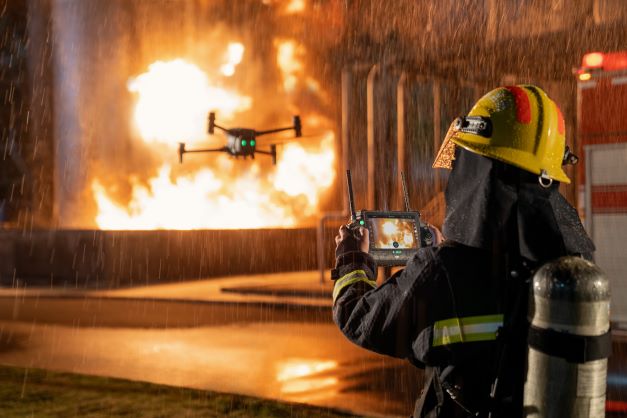
The Zenmuse H20N: A Starlight-Grade Hybrid Night Vision Sensor For The DJI M300 RTK
Alongside the new M30 Product line ecosystem, DJI also unveils the Zenmuse H20N sensor specifically made for the DJI M300 RTK drone. The Zenmuse H20N is a hybrid sensor solution that combines a starlight-grade night vision camera, a hybrid zoom thermal imaging camera and a laser rangefinder for use with the M300 RTK, bringing a revolutionary experience to night operations. The ultra-low-illumination starlight-grade night vision camera can capture the scene clearly even in darkness, setting a new standard for search and rescue operation or emergency situations requiring immediate recognition. It features starlight-grade night vision with low illumination to 0.0001 Lux, a 20x hybrid optical zoom, 640x512 resolution thermal imaging camera, 2x\8x optical zoom and a laser rangefinder with 1200m range.
Availability And Purchasing Information
The DJI M30 comes with the RC Plus remote controller, a set of batteries and a charging box. The DJI M30 and the DJI Zenmuse H20N will be available for purchase through the DJI online store and DJI Enterprise dealers. FlightHub 2 will have a free testing period for all users from today through October 31, 2022. DJI Dock is currently being tested with selected users and will be available for purchase starting from Q4 2022.
